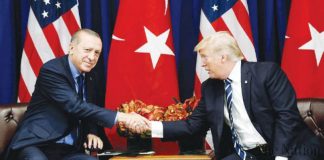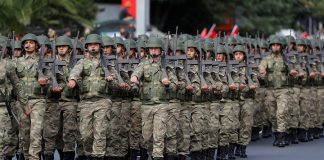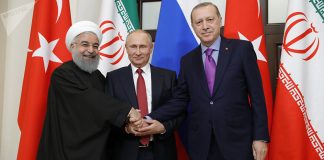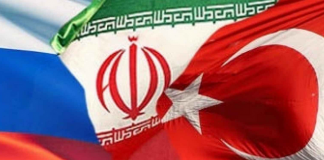Turkey
Jerusalem is Muslims’ red line
By Yasin Aktay
The U.S.’s political mind, humanitarian values and rationality are not proportionate to its power. Unfortunately, the area of influence it occupies in...
Trauma for migrant children stranded in Greece
Published: 25 March 2017
A Save the Children report released on March 16 raises alarm about the dire consequences of the deal made between the...
Turkey support key as US seeks to hold on in Syria
The Islamic State group may be on the run from its last bastion in Syria but the United States is gearing up for a...
Erdogan’s chief adviser calls for Turkey’s NATO membership to be reconsidered
Published time: 20 Nov, 2017
It is time to reconsider the issue of Turkey’s membership in NATO, Erdogan’s chief adviser, Yalcın Topcu, has stated, according...
Israel Threatens with Wider War in the Middle East
Israel responds to defeat of Islamist rebels in Syria with threat of wider regional war
By Jean Shaoul
25 November 2017
Israel’s Defence Minister Avigdor...
Climate change may make Middle East and North Africa uninhabitable
Rising sea levels, increasingly severe storms and deadly heat waves may imperil the region in coming decades, scientists and studies say
By Jacob Powell
Tuesday 27...
How colonial violence came home: the ugly truth of the first...
The Great War is often depicted as an unexpected catastrophe. But for millions who had been living under imperialist rule, terror and degradation were...
Syria Summit Kicks Off In Russia With Some Anti-Saudi Trolling
Syria Summit Kicks Off In Russia With Some Anti-Saudi Trolling
"No need for empty words or gimmicks - including glowing orbs - when you're actually...
Agreements on Syrian integrity, Disagreement on Kurds
Sochi Talks Roundup: Russia, Iran, Turkey Reach Important Breakthroughs on Syria
Speaking to the press after his meeting with his Iranian and Turkish counterparts in...
Russian, Iranian and Turkish Chiefs of General Staffs Agreed on Measures...
The chiefs of general staff of Russia, Iran and Turkey have agreed on measures to enhance cooperation in the Idlib de-escalation zone. Moreover, the...









